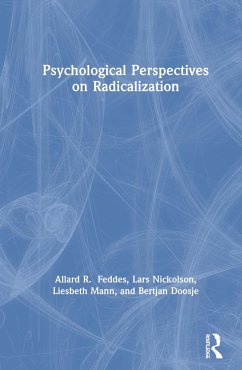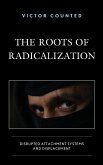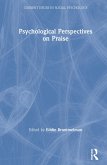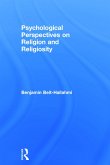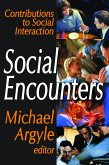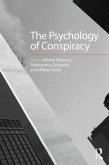- Gebundenes Buch
- Merkliste
- Auf die Merkliste
- Bewerten Bewerten
- Teilen
- Produkt teilen
- Produkterinnerung
- Produkterinnerung
This innovative new book examines radicalisation from new psychological perspectives by examining the different typologies of radicalising individuals, what makes individuals resilient against radicalisation, and events that can trigger individuals to radicalise or to de-radicalise.
Andere Kunden interessierten sich auch für
![The Psychology of Radicalization and Terrorism The Psychology of Radicalization and Terrorism]() Willem KoomenThe Psychology of Radicalization and Terrorism209,99 €
Willem KoomenThe Psychology of Radicalization and Terrorism209,99 €![The Roots of Radicalization The Roots of Radicalization]() Victor CountedThe Roots of Radicalization102,99 €
Victor CountedThe Roots of Radicalization102,99 €![Psychological Perspectives on Praise Psychological Perspectives on Praise]() Psychological Perspectives on Praise179,99 €
Psychological Perspectives on Praise179,99 €![Psychological Perspectives on Religion and Religiosity Psychological Perspectives on Religion and Religiosity]() Benjamin Beit-HallahmiPsychological Perspectives on Religion and Religiosity200,99 €
Benjamin Beit-HallahmiPsychological Perspectives on Religion and Religiosity200,99 €![Psychological Metaphysics Psychological Metaphysics]() Peter A. WhitePsychological Metaphysics56,99 €
Peter A. WhitePsychological Metaphysics56,99 €![Social Encounters Social Encounters]() Michael ArgyleSocial Encounters68,99 €
Michael ArgyleSocial Encounters68,99 €![The Psychology of Conspiracy The Psychology of Conspiracy]() The Psychology of Conspiracy58,99 €
The Psychology of Conspiracy58,99 €-
-
-
This innovative new book examines radicalisation from new psychological perspectives by examining the different typologies of radicalising individuals, what makes individuals resilient against radicalisation, and events that can trigger individuals to radicalise or to de-radicalise.
Produktdetails
- Produktdetails
- Verlag: Routledge
- Seitenzahl: 174
- Erscheinungstermin: 18. Juni 2020
- Englisch
- Abmessung: 240mm x 161mm x 14mm
- Gewicht: 432g
- ISBN-13: 9781138897564
- ISBN-10: 1138897566
- Artikelnr.: 69948885
- Herstellerkennzeichnung
- Libri GmbH
- Europaallee 1
- 36244 Bad Hersfeld
- gpsr@libri.de
- Verlag: Routledge
- Seitenzahl: 174
- Erscheinungstermin: 18. Juni 2020
- Englisch
- Abmessung: 240mm x 161mm x 14mm
- Gewicht: 432g
- ISBN-13: 9781138897564
- ISBN-10: 1138897566
- Artikelnr.: 69948885
- Herstellerkennzeichnung
- Libri GmbH
- Europaallee 1
- 36244 Bad Hersfeld
- gpsr@libri.de
Dr. Allard R. Feddes received his PhD at the Friedrich-Schiller University of Jena, Germany, in 2007, on development of prejudice in childhood. He now is assistant professor in the Social Psychology Department at the University of Amsterdam. He is interested in how group membership influences our feelings, thoughts, and behavior and has studied the psychology of (de)radicalization since 2011. Lars Nickolson graduated cum laude as a Master in Philosophy in 2008. For more than a decade, he has been involved with counter-radicalization policy both as a researcher and an advisor, working within and outside of the Dutch government. He is currently a PhD candidate at the Department of Political Science at the University of Amsterdam. Dr. Liesbeth Mann obtained her PhD at the University of Amsterdam studying the emotion of humiliation in interpersonal and intergroup contexts. Currently, she works at the same university as a teacher and researcher in cultural and political psychology. She is also involved in a number of (governmental) projects focused on the process of (de)radicalization. Dr. Bertjan Doosje was Professor of Radicalization in the Department of Social Psychology at the University of Amsterdam from 2013 until 2019 and is currently Associate Professor there. He received his PhD on stereotyping in intergroup contexts in 1995 (cum laude). Since then, he has examined intergroup relations in general, and after 9/11/2001, he has developed a special focus on radicalization and terrorism.
Chapter 1: Introduction
Chapter 2: What is Radicalization?
Chapter 3: Describing the Elephant When You Are Blind: Methods to Study
Radicalization
Chapter 4: The Stages of Radicalization
Chapter 5: Wanted: Radical: About Profiles, Populations, and Personalities
Chapter 6: Psychological Aspects of Radical Groups
Chapter 7: The Last Straw: Trigger Factors in the Radicalization Process
Chapter 8: Resilience against Radicalization and Deradicalization
Chapter 9: EXIT! The Psychology of Deradicalization and Disengagement
Chapter 10. Eight Lessons for Dealing with Radicalization
Chapter 2: What is Radicalization?
Chapter 3: Describing the Elephant When You Are Blind: Methods to Study
Radicalization
Chapter 4: The Stages of Radicalization
Chapter 5: Wanted: Radical: About Profiles, Populations, and Personalities
Chapter 6: Psychological Aspects of Radical Groups
Chapter 7: The Last Straw: Trigger Factors in the Radicalization Process
Chapter 8: Resilience against Radicalization and Deradicalization
Chapter 9: EXIT! The Psychology of Deradicalization and Disengagement
Chapter 10. Eight Lessons for Dealing with Radicalization
Chapter 1: Introduction
Chapter 2: What is Radicalization?
Chapter 3: Describing the Elephant When You Are Blind: Methods to Study
Radicalization
Chapter 4: The Stages of Radicalization
Chapter 5: Wanted: Radical: About Profiles, Populations, and Personalities
Chapter 6: Psychological Aspects of Radical Groups
Chapter 7: The Last Straw: Trigger Factors in the Radicalization Process
Chapter 8: Resilience against Radicalization and Deradicalization
Chapter 9: EXIT! The Psychology of Deradicalization and Disengagement
Chapter 10. Eight Lessons for Dealing with Radicalization
Chapter 2: What is Radicalization?
Chapter 3: Describing the Elephant When You Are Blind: Methods to Study
Radicalization
Chapter 4: The Stages of Radicalization
Chapter 5: Wanted: Radical: About Profiles, Populations, and Personalities
Chapter 6: Psychological Aspects of Radical Groups
Chapter 7: The Last Straw: Trigger Factors in the Radicalization Process
Chapter 8: Resilience against Radicalization and Deradicalization
Chapter 9: EXIT! The Psychology of Deradicalization and Disengagement
Chapter 10. Eight Lessons for Dealing with Radicalization

